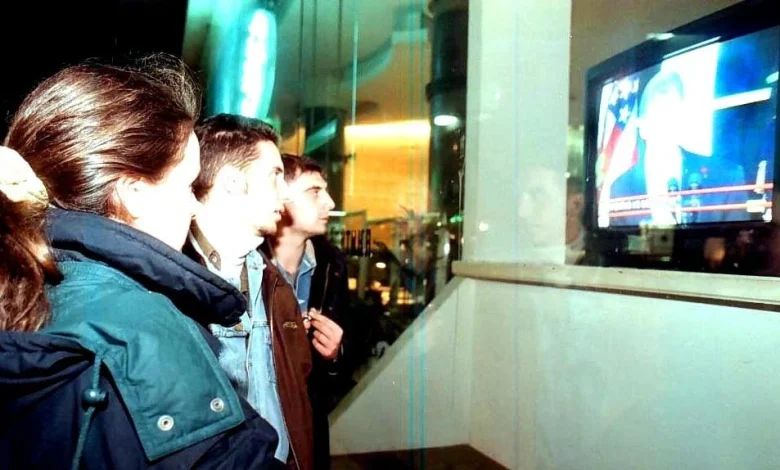Maps, Hostages and Milosevic’s ‘Big Mistake’: Serbian Diplomat Recalls Dayton

As negotiations on Bosnia dragged on, Vujovic recalled Stanisic working a parallel channel of communication to secure the release of US journalist David Rohde, who had been arrested by the Bosnian Serbs on October 29, 1995, and two French pilots held by Mladic’s forces since that August.
Rohde was released after 10 days, but Vujovic said the issue of the pilots was “much more difficult”.
“Stanisic’s men twice went to the cave where they [Bosnian Serb forces] were holding the French pilots and twice there could have been an armed conflict and bloodshed,” he told BIRN, saying Mladic had seized them on a “whim”.
The Frenchmen were released on December 12 1995, just days before the formal signing of the Dayton Peace Accords in Paris.
The wars in Bosnia and Croatia were over, but the issue of Kosovo – where it arguably all began – was festering.
In 1999, US envoy Richard Holbrooke told The New York Times that Dayton had not been the time or place to discuss Kosovo.
“Bosnia was then the emergency, and it had to be stopped,” he said. “Otherwise, there would have been a real risk that Bosnia would merge with Kosovo into a huge firestorm that would destabilize the whole region.”
Over the next two years, Kosovo Albanians would abandon their policy of passive resistance to Serbian repression, arming for a war against Milosevic with guns from neighbouring Albania and money from the Albanian diaspora in Europe and the US.
In his 2018 book Last Flight From Dayton: Negotiations Behind Closed Doors, however, Vujovic wrote that on November 10, 1995, in Dayton, he received from a US official a “proposal document” on the southern Serbian province.
The proposal, he wrote, foresaw “wide autonomy” for the Kosovo Albanians and “the opportunity to organise their own life and development”.
It also envisaged “reduced centralised influence from Belgrade”, Vujovic wrote.
But when he passed the document to Milosevic, the Serbian strongman screwed it up and threw it back at him, refusing to even discuss the issue, Vujovic recalled in the book. He quoting Milosevic as saying: “Who do they think I am? What Kosovo? Kosovo is a domestic Serbian issue.”
Speaking to BIRN, Vujovic said he suspected at the time that Milosevic was wrong. Before the decade was out, Serbia had lost Kosovo in a war with NATO amid widespread Serbian atrocities and more ethnic cleansing. Vujovic took part too in the Kumanovo negotiations that ended the 1998-99 Kosovo war and brought the deployment of NATO-led peacekeepers; he remained in the diplomatic service, before entering the private sector.
For a brief period after Dayton, Vujovic felt like Belgrade was coming in from the cold; the treatment of him in Washington “changed completely”, he said, but then the fighting began in Kosovo.
Of Milosevic’s response to the US proposal, Vujovic said: “It was a big mistake.”





